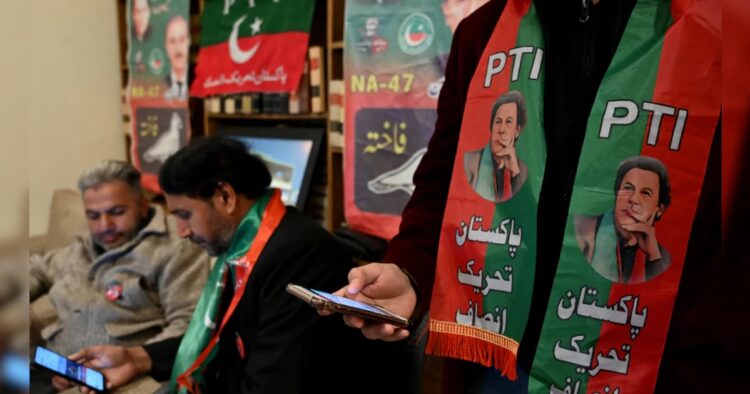In the aftermath of Pakistan’s recent election, independent candidates linked to jailed former Prime Minister Imran Khan have defied expectations, emerging as frontrunners in early tallies. The Election Commission of Pakistan (ECP) faced criticism for the prolonged delay in releasing results, fueling accusations of poll rigging.
Despite Imran Khan’s Pakistan Tehreek-e-Insaf (PTI) being barred from contesting as a bloc, unofficial counts by local media indicated that independent candidates, many backed by PTI, were leading in most constituencies. This unexpected turn of events challenged preconceived notions about the election outcome.
As the ECP struggled to announce results, only 13 National Assembly outcomes were declared by 9:00 am, more than 16 hours after polling ended. Notably, independent candidates associated with PTI, as well as those from rival parties like the Pakistan Muslim League-Nawaz (PML-N) and the Pakistan Peoples Party (PPP), claimed victories in various constituencies.
Experts and observers expressed surprise at the evolving dynamics of the election. Sarah Khan, an assistant professor of political science at Yale University, highlighted the disruption of earlier expectations. The delayed results upended the anticipated outcome, signaling a departure from the initial certainty surrounding the election.
PTI’s chief organizer, Omar Ayub Khan, remained optimistic about the party’s prospects, asserting that PTI-backed independent candidates could potentially form the next federal government with a significant majority. Meanwhile, other major parties, such as PML-N and PPP, remained hopeful of securing significant wins in crucial provinces.
However, concerns about the legitimacy of the electoral process persisted, exacerbated by the delayed announcement of results and accusations of interference. Michael Kugelman, director of the South Asia Institute at the Woodrow Wilson International Center for Scholars, suggested that the delay indicated potential manipulation by influential actors within the political landscape.
Moreover, the election was marred by logistical issues and controversies, including a mobile phone network shutdown on voting day, ostensibly for security reasons. Digital rights activist Usama Khilji argued that such actions contributed to public skepticism regarding the fairness of the electoral process.
Despite challenges and uncertainties, citizens like first-time voter Haleema Shafiq emphasized the importance of democratic participation. However, concerns lingered among voters like Syed Tassawar, who questioned whether their votes would be accurately counted.
The deployment of over 650,000 security personnel aimed to ensure a peaceful voting process, despite sporadic incidents of violence nationwide. The election’s outcome reflects Pakistan’s complex political landscape, marked by a history of allegations of rigging and external influences on the democratic process.

















Comments